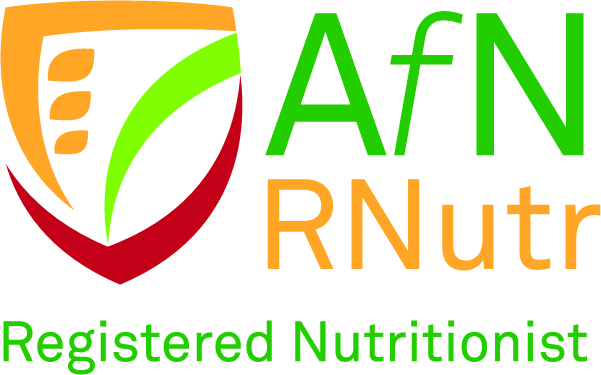Raw Vegan Diet
What Is the raw Vegan diet?
A raw vegan diet is a completely plant-based diet consisting of all or mostly uncooked foods, such as fruits, vegetables, nuts and seeds. Some foods may be included that are processed with heat to a certain degree, such as cold-pressed oils and dried fruits.
why is it popular?
There is a general assumption among raw vegan dieters that cooking can negatively impact the nutritional properties of plant-based foods. Or in other words, cooking food is “toxic”. But the reality is that nutrition is much more complex than this.
Sometimes cooking can increase nutrient availability, and other times it can decrease nutrient availability. Even the type of cooking can have a big impact on the nutritional content of certain foods.
For example:
- Heat processing has been shown to increase the bioavailability of the antioxidant lycopene in tomatoes (1)
- Cooking vegetables in a small amount of oil for a short amount of time (such as sauteing and stir-frying) can greatly increase the absorption of fat-soluble nutrients (2)
- Steaming vegetables will retain more vitamins such as vitamin C than boiling, as water-soluble vitamins are lost within the water during boiling (3)
There are also some social media influencers promoting the raw vegan diet as a quick fix for weight loss, as well as praising it for being able to improve digestion, reduce the risk of disease, increase energy and “detoxify” or “cleanse” the body.
These are some BIG claims, so let’s see what the science really says…


Weight Loss
People who stick to a raw food diet in the long-term claim to lose a significant amount of weight. (4)
This is unsurprising, as the types of foods you can eat on this diet are severely limited. Plus, the ones you are able to eat (raw fruits and vegetables) are low in calories relative to their volume. This means you can eat large volumes of food, to the point that you feel physically full, but the calorie content will remain relatively low.
However, this extreme weight loss could be dangerous, as a raw vegan diet can increase the risk of being underweight, (4) as well as increase the risk of nutritional deficiency and fertility issues (more on this later).
Overall, there is no good-quality research to support the effectiveness of a strict raw vegan diet for maintaining healthy weight loss in the long term.
I often highlight that everyone is different and that certain eating patterns might really work for some people. But if you are looking to lose weight sustainably, please know that there are more evidence-based ways to do this that don’t involve this level of extreme restriction and risk to health.
Digestion
Eating a diet high in a variety of plant foods is suggested to support our gut health – by increasing the diversity of our gut microbiome. (5)
However, there are a few reasons why a completely raw vegan diet may not be preferable for our digestion.
Firstly, our bodies tend to digest and absorb nutrients from cooked foods better than raw foods, as the heat from the cooking process helps break down plant cell walls.(6) Cooked foods are also easier to chew, which further aids digestion in your gut.
In addition, some people with gut issues such as irritable bowel syndrome may find that large amounts of raw vegetables aggravate their symptoms, so it’s worth paying attention to how you feel after a meal rich in raw foods.
My advice? If you want to improve your digestion, your best bet is to focus on eating a variety of high-fibre foods – whether they are raw or not!
Risk of Disease
We know that a diet rich in fruits and vegetables is beneficial for reducing the risk of diseases, such as cardiovascular disease and some types of cancer. But there’s no evidence to suggest that these fruits and vegetables need to be raw.
One study concluded that participants who followed a raw plant-based diet for 4 weeks saw a beneficial impact on cardiovascular risk factors such as a reduction in blood pressure and waist circumference. (7)
However, this study had several limitations. Firstly, the study did not use a control group. This means there was no insight into how the raw plant-based diet fared against other known heart-healthy diets. The study also had a very short follow-up period, so it is unknown whether these benefits persisted for long enough to reduce the risk of developing cardiovascular disease.
You might be pleased to know that you don’t have to live on a diet of salad leaves and smoothies to reduce your overall risk of disease! Instead, I recommend eating a balanced diet with minimal saturated fat and salt, plenty of fruit and vegetables (raw and cooked) and lots of fibre.
Detoxifying And Cleansing
Words such as ‘detoxing’ and ‘cleansing’ are a BIG red flag.
Some wellness influencers claim that the symptoms people experience on a raw vegan diet (such as headaches and a loss of period) are “side effects of the body detoxing” – when in fact, it could be signs of nutritional deficiency.
If you hear the words ‘detox’ or ‘cleanse’, this should be a sign that the information is not evidence-based.


What are the risks?
Commonly noted side effects
- Always feeling hungry/increased cravings
- Feeling gassy and bloated
- Reduced energy levels
- Headaches
Long-term risks
Nutritional Deficiency
Whilst a well-planned vegan diet can provide you with all the nutrients you need, a raw vegan diet is often nutritionally unbalanced, which carries an increased risk of nutritional deficiency.
One study showed that 38% of people on a raw food diet were deficient in B12, which could be related to the general avoidance of nutritional supplements within the raw vegan community. (8)
In addition, following a raw diet is associated with lower bone mass (compared to those eating a variety of food groups), which is likely to be a result of a low intake of certain nutrients, such as calcium and vitamin D. (9)
Female Fertility
Research suggests that women who follow a raw vegan diet are more likely to have fertility issues. One study found that women who ate a strict raw food diet were 7 times more likely to have amenorrhea (loss of menstruation) compared to moderate raw food dieters. (4)
It’s important to note that amenorrhea doesn’t just impact your ability to get pregnant. In fact, hormonal changes can also impact your health in other ways, such as reducing bone mass (and ultimately increasing your risk of osteoporosis and fractures).
Summary
Nutritional research does not support the idea that cooked foods are ‘toxic’ and that we should only eat raw plant-based foods for our health.
A completely raw vegan diet may help some people lose weight in the short term, but several dangerous risks shouldn’t be ignored (such as an increased risk of nutritional deficiency and fertility issues).
Cooking makes food a lot more enjoyable to eat and it allows you to have a wider variety of foods (which is important for getting all the nutrients we need). Remember, it’s going to be a lot harder to eat healthy in the long term when you are limiting yourself to a bowl of salad leaves every day!
References
- Story, E.N., Kopec, R.E., Schwartz, S.J. and Harris, G.K. (2010). An update on the health effects of tomato lycopene. Annual review of food science and technology, 1.
- Veda, S., Kamath, A., Platel, K., Begum, K. and Srinivasan, K. (2006). Determination of bioaccessibility of β‐carotene in vegetables by in vitro methods. Molecular nutrition & food research, 50(11), pp.1047-1052.
- Lee, S., Choi, Y., Jeong, H.S., Lee, J. and Sung, J. (2018). Effect of different cooking methods on the content of vitamins and true retention in selected vegetables. Food science and biotechnology, 27(2), pp.333-342.
- Koebnick, C., Strassner, C., Hoffmann, I. and Leitzmann, C. (1999). Consequences of a long-term raw food diet on body weight and menstruation: results of a questionnaire survey. Annals of Nutrition and Metabolism, 43(2), pp.69-79.
- McDonald, D., Hyde, E., Debelius, J.W., Morton, J.T., Gonzalez, A., Ackermann, G., Aksenov, A.A., Behsaz, B., Brennan, C., Chen, Y. and DeRight Goldasich, L. (2018). American gut: an open platform for citizen science microbiome research. Msystems, 3(3), pp.e00031-18.
- Holland, C., Ryden, P., Edwards, C.H. and Grundy, M.M.L. (2020). Plant cell walls: Impact on nutrient bioaccessibility and digestibility. Foods, 9(2), p.201.
- Najjar, R.S., Moore, C.E. and Montgomery, B.D. (2018). A defined, plant‐based diet utilized in an outpatient cardiovascular clinic effectively treats hypercholesterolemia and hypertension and reduces medications. Clinical Cardiology, 41(3), pp.307-313.
- Koebnick, C., Garcia, A.L., Dagnelie, P.C., Strassner, C., Lindemans, J., Katz, N., Leitzmann, C. and Hoffmann, I. (2005). Long-term consumption of a raw food diet is associated with favorable serum LDL cholesterol and triglycerides but also with elevated plasma homocysteine and low serum HDL cholesterol in humans. The Journal of nutrition, 135(10), pp.2372-2378.
- Fontana, L., Shew, J.L., Holloszy, J.O. and Villareal, D.T. (2005). Low bone mass in subjects on a long-term raw vegetarian diet. Archives of internal medicine, 165(6), pp.684-689.









